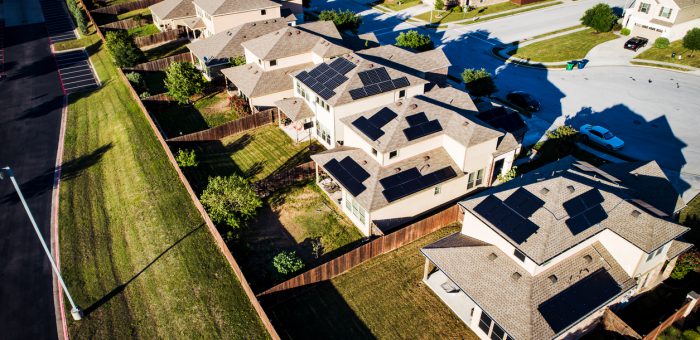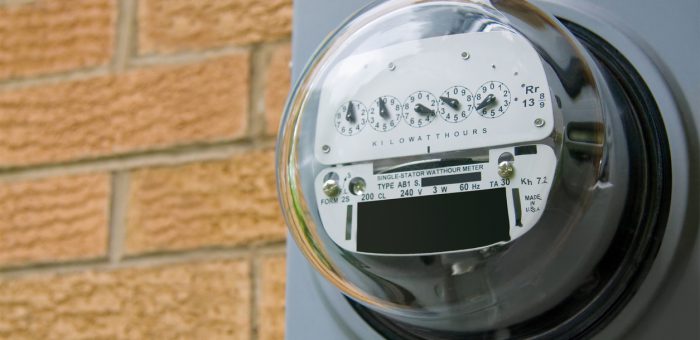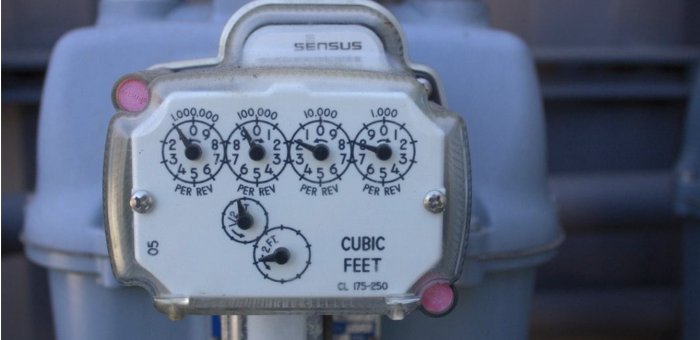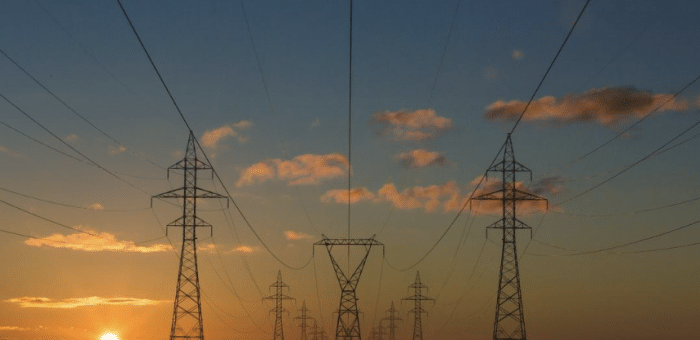Do you ever look at your electricity bill and feel like someone must have broken in and left all your lights on? I mean, how else could your electric bill have gotten so high, so fast? It feels like being robbed! Have you found yourself saying, “My electricity usage has doubled!”
No more highway robbery via electric bill.
Click on a section to skip directly to it:
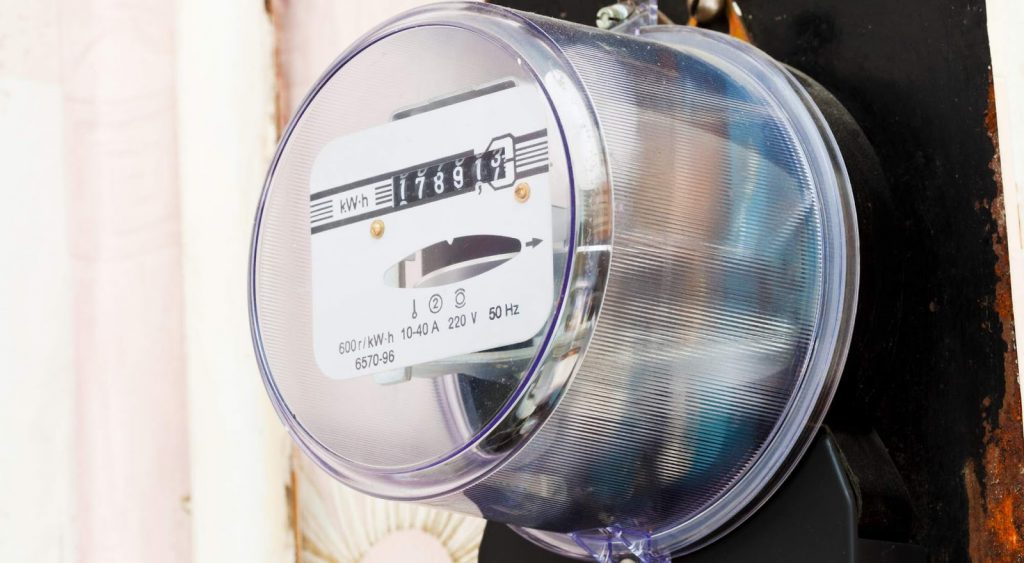
How Is Electricity Usage Measured?
Think about all of the ways that you consume electricity each day in your home.
- Turning on the lights
- Taking a hot shower
- Brewing a pot of coffee
- Adjusting the thermostat
- Reheating food in the microwave
When you go about your daily routine at home, you may not think about it, but you are consuming energy all the time.
The amount of energy that you use is measured in units known as kilowatts per hour (kWh) and your Retail Electric Provider (REP) charges you for every kWh that you use to power your home.
How Kilowatts Per Hour Are Calculated
To understand how kilowatts per hour are calculated, you have to understand a little bit of basic math.
One kilowatt = 1000 watts
So when you are calculating kilowatts per hour, it is a measure of how many watts are used in one hour.
Most of us are familiar with the term “watts” from a common household item – the light bulb.
As you know, various types of light bulbs are named by their wattage, which describes how many watts it takes to light up the bulb.
[ctasecond]
Let’s figure out a light bulb’s kilowatts per hour:
Step 1 – Divide The Number Of Watts By 1000
A 60-watt bulb / 1000 = 0.06 kilowatts
Step 2 – Estimate The Number Of Hours The Bulb Is Used In A Month
5 hours a day x 30 days = 150 hours per month
Step 3 – Multiply The Hours By The Kilowatt Consumption
150 hours per month x 0.06 kilowatts = 9 kilowatt-hours per month
This is for one light bulb!
What Consumes The Most Electricity In The Average Home?
The US Energy Information Administration (EIA) released data in 2018 that states the average Texan home consumes about 1,176 kWh per month.
Being aware of what consumes the most electricity in the average home can help you assess your situation and determine how it is affecting your electric bill.
Take a look at the three largest users of electricity usage in most American homes, according to the EIA:
Air Conditioning & Heating
Air conditioning (A/C) and heating account for about 32% to 50% of your household’s energy consumption.
Think about the summer months in Texas…
You would not be able to survive long without cranking on the air conditioner.
Although Texas is a southern state, heating your home in the winter is necessary, too.
Water Heating
Your water heater consumes about 14% of your household energy.
Did you know that a water heater runs about 3 hours a day in most American homes?
Since you access hot water on autopilot, you probably don’t realize that it consumes so much energy in just one day.
Lighting
The energy required to light up your home is about 10% of your home’s total consumption.
If you use LED lights, you can significantly reduce the number of kilowatt-hours you use, which in turn can cut your energy costs.
You have to use lights, but simply turning them off when not in use can save you money.
Six Questions To Ask If Your Electricity Usage Has Doubled
If you have found yourself wondering, “Why has my electricity bill doubled?” you must take the time to find where the problem lies.
You can begin accessing your energy usage by asking these questions:
#1 – Have You Recently Purchased A New Appliance?
Naturally, when you add more appliances to your home, you are more likely to consume more energy.
For example, purchasing a second refrigerator for your growing family is going to use more electricity in your home.
Sometimes the increase in energy consumption can come from using an appliance that you haven’t used before until recently…
Like a dishwasher that was barely used — until a new baby entered the home and no one could find the time to wash and dry dishes by hand anymore.
#2 – Are Your Old Appliances Losing Efficiency?
The older an appliance, the more likely it is to consume more energy to use it.
Think about it…
A family that still uses a television that was purchased in 1999 is going to demand more energy than a newer flat-screen TV.
Most appliances today use marketing tactics and information so that you can better understand ENERGY STAR appliances.
You can use this information to help you make smarter decisions when buying and using energy-efficient appliances.
[ctafirst]
#3 – Have You Added New Devices Or Technology To Your Home?
You are likely to consume more energy when you purchase a shiny new device, tech toy, or gadget.
This is especially true if you are enjoying its newness and the thrill of owning a new device.
A new surround sound system in your home can bring more exciting nights of watching Netflix as a family, thus requiring more energy consumption.
#4 – Is Your Insulation Or Ducting Compromised?
Wear and tear in older homes can lead to holes in heating, ventilation, air conditioning (HVAC) ducts, and insulation degradation.
This, in turn, could allow hot and/or cold air into spaces in your home such as attics or crawl spaces, making HVAC systems work harder.
The harder it works, the more energy it consumes.
#5 – Has Your Lifestyle Changed?
Are you or someone else in your household spending more time at home recently? Maybe it’s due to:
- Working from home
- Loss of a job
- Traveling less
- Kids home from college
- New hobbies that require electricity (power tools, exercise equipment, etc.)
These lifestyle changes can easily increase the use of electricity in your home.
#6 – Has The Number Of Occupants In Your Home Changed?
If you have recently had…
- A partner or roommate move into your home
- A child move back home after college graduation
- Nieces or nephews spending the summer with your family
More people living in your home means there is a need for more hot water, cool air, and appliance and device usage.

Five Reasons For Unusually High Electricity Usage
Have you recently asked yourself “What can cause my electric bill to be so high?”
You can quite often link an abnormally high electricity bill to unusually high electricity usage.
Keep reading to understand five reasons why your electricity usage might be unusually high.
#1 – Lack Of Energy-Efficient Lighting
If you are still using traditional lighting options, consider using LED light bulbs.
The cost for this type of lighting is slightly more than traditional options but it is worth the investment because you:
- Can use up to 90% less energy by replacing your traditional light bulbs
- Won’t need to replace your LED light bulbs as often as traditional bulbs
- Can see energy savings almost immediately
Solution
Simply take the time to replace your traditional light bulbs.
You can take on this project all at once or replace them room by room each month.
Once you make the switch to LED lighting, your budget will thank you.
#2 – Vampire Appliances
Did you know that just because something is turned off, doesn’t mean it’s not consuming electricity?
Your computer printer, desk lamp, coffee maker, and any other device that is not unplugged is continuing to suck (hence the term “vampire appliances”) and consume energy.
That is a waste of energy and your hard-earned money.
Solution
There are two ways you can prevent this from happening:
- Unplug any unused appliances until you need to use them
- Connect appliances to a powerstrip and turn it off and on as needed.
You will be surprised at how much less energy you consume each month by faithfully paying attention to “vampire appliances.”
#3 – Poor Insulation
A poorly insulated home can cause you to waste a lot of energy and money.
Running the heat or A/C while leaks are coming from doors, windows, and other drafty spaces in your home is counterproductive.
It’s time to pay attention to your home’s insulation or you will be paying unnecessarily higher electricity bills.
Solution
Take the time to assess and repair your home’s poor insulation.
- Invest in new windows to reduce or eliminate drafts
- Hire someone to install more insulation in the attic and/or basement of your home
- Install door and window draft stoppers
These investments can save you money on future electricity bills.
#4 – Thermostat Settings
Is your AC or central heat running all day – or even worse – when you’re not home?
Consider setting your thermostat to avoid running your A/C and heat continuously.
You will be more likely to save on energy consumption and your monthly bill.
Solution
During the colder months:
- Set your thermostat around 68 degrees during the day
- Turn your thermostat down 10 degrees at night when people are sleeping
- Keep plenty of throw blankets available for you and your family
- Wear more clothing inside the home
During the warmer months:
- Set your thermostat around 78 degrees when people are home
- Turn the thermostat up to 85 degrees when everyone is away from home
[ctasecond]
#5 – Inefficient Appliance Usage
Some of your largest appliances – dishwashers, clothes washers, and dryers – use a significant amount of energy.
Using these appliances can easily drive your electricity costs up.
On average, it takes about 40 gallons of water to wash a full load but…many of the “loads” you wash may not utilize the washer to its fullest capacity.
Solution
Try these tips to get more out of some of those larger, energy-consuming appliances:
- Keep your refrigerator or freezer full so that it uses less energy to keep the items inside cold
- Run your dishwasher, clothes washer, and dryer less frequently to use less energy
- Wash full loads in the dishwasher and clothes washer, and dry full loads of clothes in the dryer
Can’t Determine The Reason For Your Very High Electricity Consumption: Schedule An Energy Audit
You can request a professional energy audit from an independent company so that you can better understand your electricity costs.
Energy audits are assessments that give you a breakdown of your home’s energy consumption.
The auditor assesses your household’s behavior:
- How many people currently reside in the home?
- What rooms are used the most and least frequently?
- How do you normally set your thermostat in the summer and winter months?
They will also use their tools and equipment to detect any sources of unnecessary energy consumption, such as efficiency meters, specialized cameras, blower doors, and surface thermometers.
After the audit, the auditor should be able to advise you on ways to reduce the energy you consume.
How Long Does An Energy Audit Take?
An energy audit can take anywhere from 30 minutes to four hours to complete, depending on the size of the home and the complexity of its structure.
What Does An Energy Audit Cost?
According to Home Advisor, most energy audits typically cost you between $207 and $656.
Three Reasons For An Abnormally High Electric Bill
Sometimes your electric bill can suddenly increase without warning.
And get this – it may have nothing to do with your energy usage.
Let’s take a look at the most common causes of high electric bills.
#1 – Your Variable-Rate Plan Experienced A High Rate Month
As the name implies, variable-rate plans fluctuate with the market.
If your electricity bill suddenly increases, and you have a variable-rate plan, your rate (and your electricity bill) could increase or decrease month-to-month.
What Can You Do?
The good news is that you have the power to change your variable-rate plan to a fixed-rate plan.
A fixed-rate plan provides a consistent rate that does not change when the electricity market does.

#2 – Auto-Rolled To Month-to-Month Plan At The End Of Your Contract
A lot of Texas electricity companies automatically switch customers to a month-to-month plan at a higher rate if they don’t renew their contract or sign up for a new plan by the end of their current contract.
What Can You Do?
Take note of the end of your current electricity contract and put a reminder on your phone or a calendar.
Before the end of your contract, you should carefully review renewal rates for your electricity but also shop around for a better plan that meets your energy needs.
You can also use Power Wizard to continuously monitor the electricity market for new plans that suit your household needs and save you money.
#3 – An Increase In Fees Charged By The TDU Providing Electricity To Your Area
If you take a close look at your electricity bill, you might notice a line-item charge known as TDU delivery charges (also called demand charges) each month.
There could be a few reasons why there is an increase in your TDU charges:
- A faulty or broken electricity meter
- A meter may need to be upgraded from an analog meter to a smart meter
- Ratchet charges, which are charges based on your highest monthly demand for the year
- The electricity provider may have marked up your TDU fees to gain more profit
What Can You Do?
There are a couple of ways that you can go about trying to resolve this issue:
- Have the electric utility company in your area come and check to make sure your meter is not faulty and that you have a smart meter installed
- Call your retail electric provider to find out if you are being charged extra fees
- Use an unbiased comparison tool to do your due diligence in choosing the best electricity rate for you
My Electric Bill Doubled – How Can I Find A New Plan?
Now that you have a better understanding of why your electricity bill can increase significantly (or even double), you have a choice to make:
- Will you continue paying unnecessarily high electricity bills?
- Or will you find a better electricity plan that can help you save money each month?
Obviously, the second option is better for your bottom line. Here, you have two options as well:
- Go to each electricity provider’s website and compare plans and rates, which is very time consuming. Or
- Use a comparison website like Power Wizard to help you narrow your search by providing you with multiple companies, plans, and rates in one place.
The choice is yours ;).
More From the Power Wizard Blog
-
Affordable Electric Bill: Power Wizard’s Promise of Protection
Sarah, a proud Texan, knows that everything is bigger in Texas – including the choices when it comes to electricity providers. She’s no stranger to the complexities of deregulated energy markets. With a bustling household, she juggles work, family, and keeping the lights on. But there’s one thing Sarah doesn’t want to juggle: her electric bill. […]
View Article -
Vampire Energy: How Phantom Power Drains Your Wallet and the Environment
Imagine your home filled with silent energy sippers, lurking in the shadows, unnoticed yet constantly draining power and your wallet. Vampire energy, or phantom load, refers to the electricity electronic devices consume, even when turned off or in standby mode. These energy vampires are prevalent in every household and workplace, from the charger left plugged […]
View Article -
Do Solar Panels Increase Home Value?
The United States now has more than 6,000 people who work in the solar power industry and help us enjoy the benefits of this amazing technology. As solar panels become more and more common, some people are wondering, “Do solar panels increase home value estimates?” The truth is that solar panels can provide a long list of […]
View Article -
What Is Net Metering and How Does It Work?
A staggering 1300% increase. That’s how much the number of electric customers engaging in net metering skyrocketed from 2010 to 2020. But what is behind this surge? What exactly is net metering, and how could it potentially change the way you view your electricity consumption? The journey from an ordinary consumer to a potentially profitable one […]
View Article -
The Top Sources of Carbon Emissions in the U.S.
Climate change due to rising global temperature seriously threatens the natural ecosystem. It can result in erratic weather featuring intense drought, heat waves, melting ice caps, warming oceans, and increased storms when left unchecked. As the impact of climate change worsens, the risk of biodiversity loss and human extinction gets bigger. Table of Contents What […]
View Article -
California Solar Tax Credit & Incentives for Residential Rooftop Solar
Are you considering investing in residential solar panels in California? You’re not the only one. Research shows that California was ranked number one out of 50 states in 2022 for solar power generation, with more than 11 million homes powered by the sun. A major reason why solar power is popular statewide is that prices have dropped […]
View Article -
What Should You Include in an Energy Efficiency Audit?
Rising energy costs mean higher electricity bills, and for the average homeowner or business, a little savings each month can add up to extra cash at the end of the year. If you’re looking for ways to reduce your home’s energy consumption, performing a home energy audit is a great place to start. Table of […]
View Article -
How to Cancel Your Electricity Contract with Your Provider
There are many advantages to changing your electrical service, including finding a better price, switching to a company with better customer service, and finding a distributor with a green appeal. It’s easiest to end your service when a contract ends, but sometimes it makes sense to switch early. For instance, you may find that you’re […]
View Article


